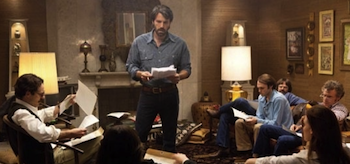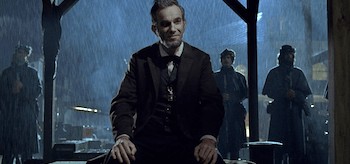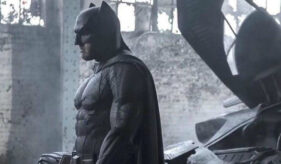The Historical Accuracy in films ARGO, LINCOLN, and their Ilk
In regards to the historical accuracy of Steve Spielberg’s Lincoln film, NPR’s Linda Wertheimer interviewed Ronald White, author of A. Lincoln: A Biography. White stated that the film is not a documentary and it should not be held to the same standards as one.
As long as the filmmaker captures the “spirit of the truth” in a film, shouldn’t that be enough? Presenting movie facts in Hollywood, unfortunately, will not sell tickets. In order to capture the audience’s attention, the filmmaker should use creative license to make the film more interesting.
White’s statements provide a strong argument concerning the overall criticisms Lincoln (2012) garnered due to it’s historical inaccuracies with it’s “over-the-top” House debates and film’s focus on slavery as the reason for the Civil War. Does this mean that Spielberg believes that audiences are in no way interested in facts? White’s argument provided great examples of why films that were adapted to the big screen cannot always be portrayed historically accurate. Though Lincoln and even Ben Affleck’s Argo provides valid examples of films that are based on historically relevant people and stories, both films embellished details to make the overall story or plot interesting to audiences. Argo and Lincoln easily garnered strong, negative responses from critics due to this.
Historical inaccuracies in films may hinder the learning process overall because it may cause confusion with documented accounts of events. The specific argument here is that both films, Argo and Lincoln, were made for entertainment purposes only—and are not documentaries. Historical inaccuracies are difficult to spot anyway due to the nature of their settings, era, et cetera—unless you are an expert on the topic. Most filmmakers who are brave enough to attempt to portray any film about documented history will fail to satisfy even the harshest critics.
Who cares you ask? It’s only entertainment? They are only movies? Simply put, there are some things that we may never know and will never be able to verify the accuracy of in films presented to audiences, especially if a film is based on events in the past, classified materials e.g. Argo and Zero Dark Thirty, and dead participants never interviewed (debriefed).
There are always two sides to every story; I’d rather see the side told with significant humility and drama. We don’t always go to the movies for an education or is that something we should start to expect from our Hollywood blockbusters?
Related Articles
FilmBook's Newsletter
Subscribe to FilmBook’s Daily Newsletter for the latest news!













